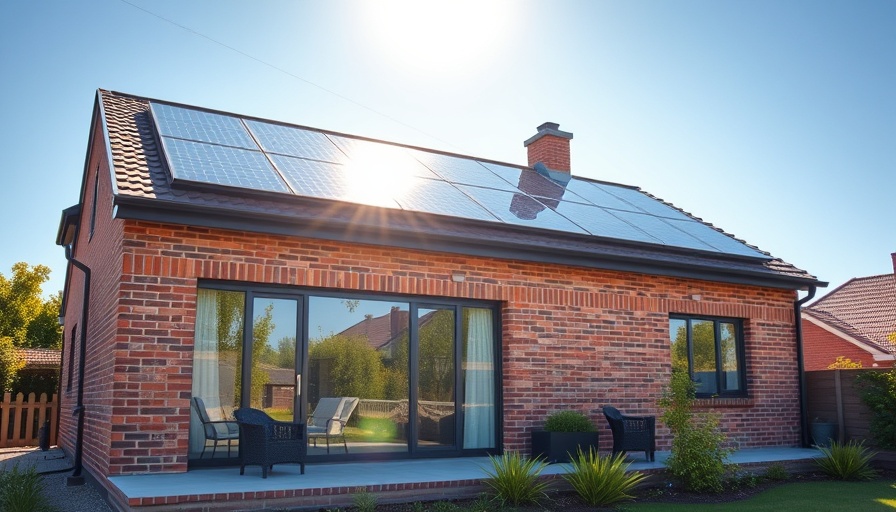
How Solar Panels Affect Home Value: An In-Depth Look
The rise in solar panel installations across the U.S. prompts homeowners to delve into a pressing question: Do solar panels significantly enhance home value? The short answer is a resounding yes. Studies indicate that homes equipped with these renewable energy systems can appreciate by up to 6.9% compared to their conventional counterparts. In monetary terms, this translates to a potential increase of approximately $34,500 for a $500,000 home, and even higher for more expensive properties.
Understanding the Key Value Determinants
While the increase in home value is notable, several influential factors shape the actual return on investment (ROI) when integrating solar panels:
- Local Electricity Rates: The financial benefits of solar energy often hinge on geography. Regions with high electricity costs usually see a more pronounced value increase from solar panels, urging homeowners to explore local rates and incentives.
- System Age and Efficiency: Newer, more efficient solar systems generally add substantial value. Outdated models, however, may fail to provide the anticipated return, emphasizing the importance of choosing the right technology.
- Ownership Status: Owned solar systems typically boost property value, while leased systems might pose challenges due to ongoing financial obligations that can deter potential buyers. Clearly delineating ownership rights in sales agreements is crucial.
- Market Demand: The desirability of sustainable homes is growing. Homes in locations where sustainability is prioritized may witness even larger value boosts, making local market trends essential to monitor.
The Broader Impact of Solar on Real Estate
Integrating solar panels into homes not only affects individual properties but the real estate market as a whole. Properties boasting energy efficiency and green features increasingly attract buyers, driving competition in markets where sustainability is valued. Websites like Zillow and Redfin are witnessing a surge in property listings highlighting solar features, indicating that these amenities can become significant selling points.
Common Misconceptions About Solar Panels
Despite the positives surrounding solar energy, misconceptions persist that can deter homeowners from considering this upgrade:
- Solar is Too Expensive: While initial installation costs can seem daunting, various financing options and incentives often mitigate upfront expenses, making solar more accessible.
- Solar Panels Require Constant Maintenance: Most modern systems are designed for minimal upkeep, debunking the myth that they demand a large amount of care.
- Only Homes in Sunny Areas Benefit: Even regions with moderate sunlight can benefit from solar energy, especially when considering advancements in technology that maximize efficiency.
Navigating the Decision to Install Solar
For prospective solar adopters, taking the following steps can yield informed decisions: Full financial analysis is critical; consult real estate agents or appraisers familiar with solar valuations. Explore resources to thoroughly understand the implications of ownership versus leasing. Consider financial incentives, including tax credits, grants, and rebates available in many states.
The Future of Solar in Real Estate
As society shifts toward renewable energy, the anticipation of stronger regulations and incentives for solar installations looms. Homebuyers will likely demand more environmentally sound choices, prompting builders to incorporate these technologies in new construction homes and enhancing property value. In the upcoming years, this trend is expected to strengthen, solidifying the presence of solar panels in the real estate landscape.
In conclusion, solar panels are increasingly recognized as valuable investments within the real estate market, aligning with growing sustainability trends and technological advancements. Homeowners looking to boost their property values should seriously consider the addition of solar panels, not just for financial gain but for long-term contributions to environmental health.
Considering a home renovation? Don't just stop at solar panels; think about how refinancing might work for you. Explore your options and take the first step toward transforming your home.
 Add Row
Add Row  Add
Add 




Write A Comment